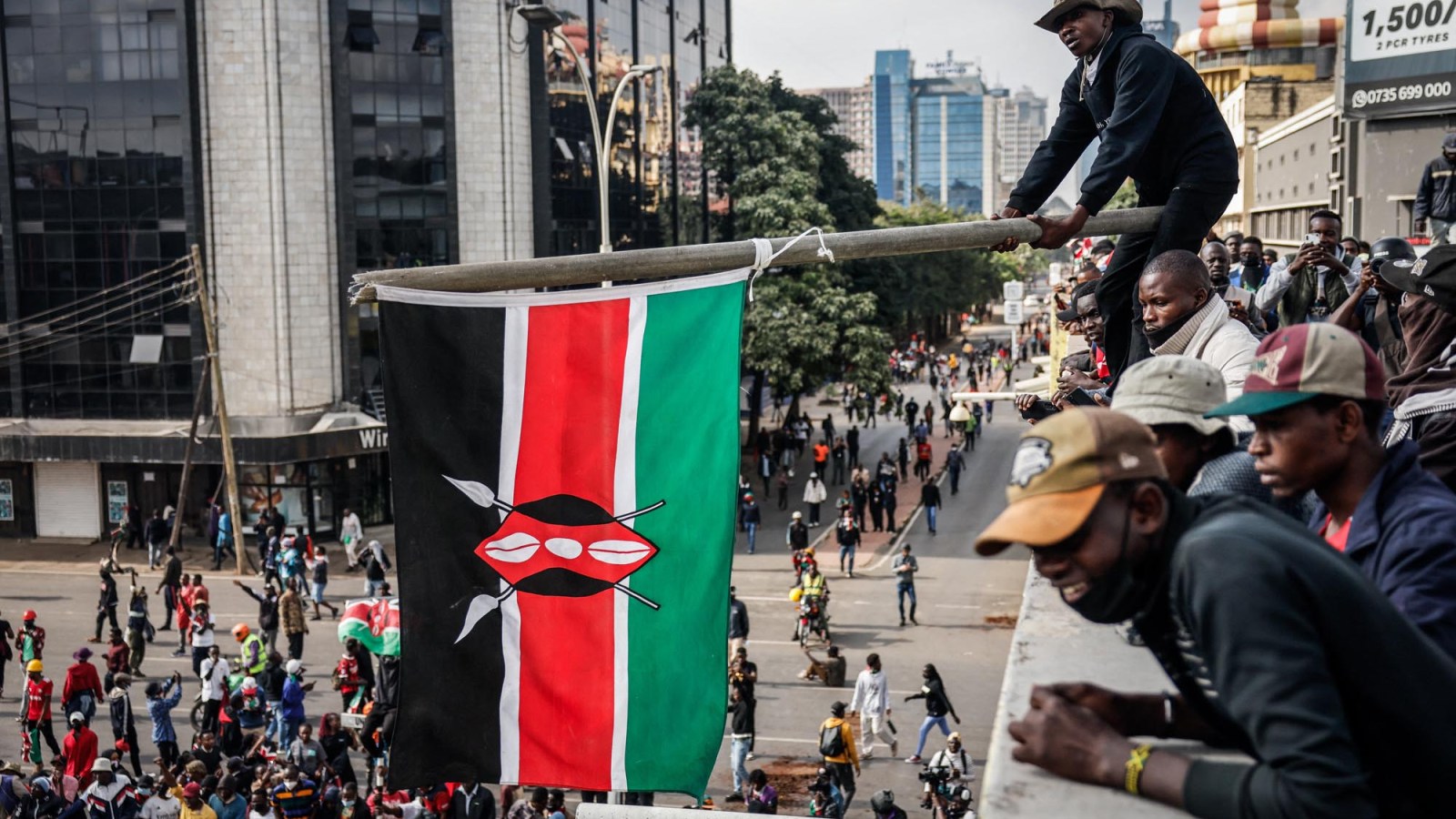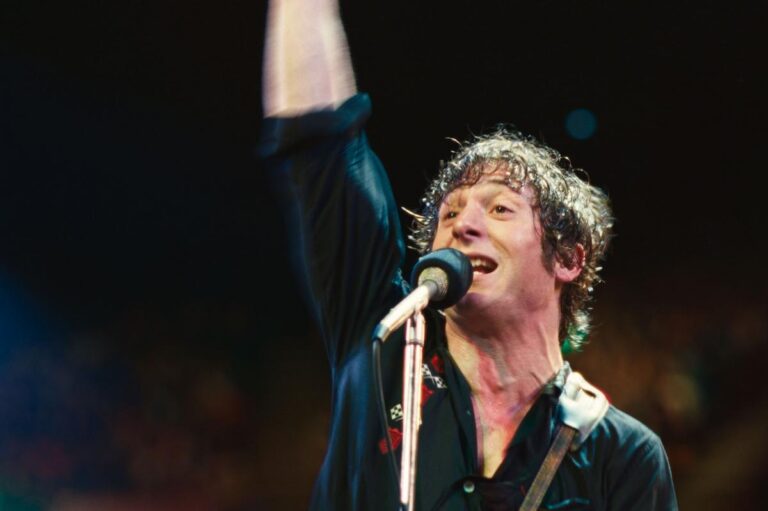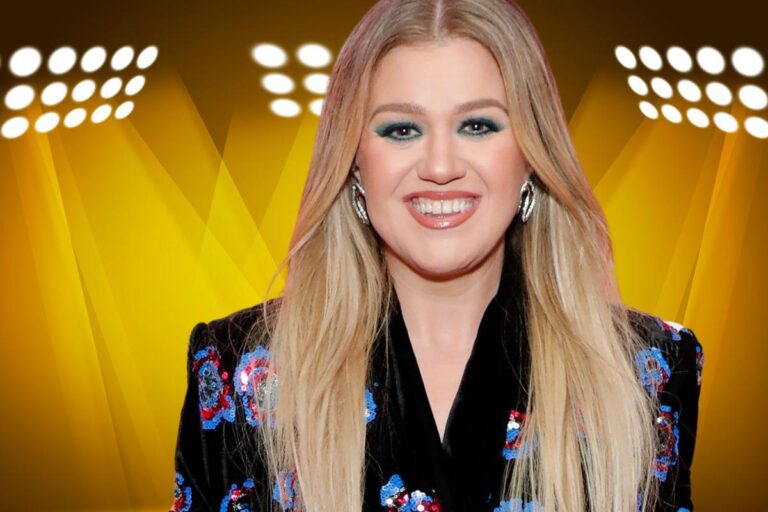In the summer of 2024, protests in Kenya against an unpopular tax-raising proposal led to at least 60 deaths, mostly at the hands of police, according to a local watchdog group. Undeterred, scores of people took to the streets again this summer to mark the one-year anniversary of the initial mobilization and decry persistent police brutality, corruption, and a prolonged cost-of-living crisis. Just as this recent wave of protests was receding, leaving behind deep concern and uncertainty, one of the country’s most beloved bands — Just a Band — was staging a reunion at a party celebrating analytical webzine Africa Is a Country’s first print anthology. Fittingly, that issue is all about the past 15 years of protest on the continent.
Blending dance, hip-hop, funk, and more, the experimental outfit Just a Band, and their leader, Blinky Bill, have often had political undertones, as heard on their 2009 track “Ha-He.” With a music video often credited as the country’s first viral one, some of “Ha-He” took aim at the Kenyan establishment. “There’s a part of the song where it says [in Swahili], loosely translated, ‘The government doesn’t care.’ So, for me, I’d rather get myself a really good dog for protection,” Bill tells me.
Shem Obara*
Many years later, as a soloist, Bill had a more foreboding take, like on his 2023 song “Dracula.” “It was kind of foreshadowing what was happening,” Bill says, reflecting on the last year of protest. “It’s just like, ‘If the government and the powers that be don’t really listen to us, then we also will not listen to them.’” This year’s protests swelled tensely across some major Kenyan cities, where some saw government buildings set ablaze, even more police brutality, and ultimately at least 50 more deaths, according to the Kenya National Commission on Human Rights. Embattled President William Ruto attempted to stifle news of the dissent, halting live television broadcasts of the melee until Nairobi’s High Court intervened
“One of the bittersweet things that have come out of the whole protest is how it has spiked a lot of creativity,” says Mutinda Kilonzo, who helps lead Qwani, a Nairobi-based youth arts collective. Qwani members introduced me to music like “Maandamano,” by beloved Kenyan singer Bien, featuring rapper Breeder LW, roughly 10 years his junior at 28 years old. Bien is best known as the frontman of Sauti Sol, one of the continent’s biggest bands, which he’s spent 20 years shepherding. Though “Maandamano” was released on YouTube last July, it was brought to streaming services this summer as the June 25 protest anniversary approached. Bien and Breeder’s reflections on the previous unrest took on a second life.

Captured By Odede*
Protests are referred to as maandamano in Swahili, and on the track, Breeder’s verse, peppered with some English, honors those killed and the resolve to keep fighting, Qwani member Mark Murimiri translates for me. Breeder boasts that their brood is “tribeless” and “partyless” with bass and a matter-of-fact confidence. Meanwhile, each breathy “maandamano” Bien croons on the choir-backed chorus feels like a drop of kerosene on the fiery spirit of the protesters. With the jazzy bounce of laid-back Afrobeats — likely spreading its message even further — “Maandamano” is also filled with visceral sound bites from the demonstrations, from impassioned chants of “Ruto must go” to a senator asking “How do you tear-gas a baddie?” while seemingly praising the protesters on Kenyan television. To date, “Maandamano” has been played more than 2.3 million times on YouTube.
Meanwhile, Kenyan rapper Octopizzo’s “June 25th,” released to commemorate the lives lost when demonstrators stormed Parliament in Nairobi last year, takes a much more somber tone with its sad, twinkling synths and moody guitar. His gravelly croak sounds melodic but grave. The tempo supports his rapid-fire bars, though, balancing heartbreak over those slain with conviction for their cause. His refrain of “June 25th” is bookended with three forceful gunshots.
Not all of Kenya’s protest music is so severe. In his song “Risasi ya Mguu,” popular TikToker Arnold Malcolm satirizes Ruto’s now-infamous advice that police shoot alleged vandals in the legs during protests. In one video liked more than 56,000 times on TikTok, children dance to the song by limping to its twangy beat, convulsing with rolled eyes and dangling tongues. Later, half of them mime shooting the others, who are retreating with their hands up. “I feel like for a long time, you would find [that] young people had given up on the country, saying they’re not really into politics or they don’t care about those things; they’re the things for their parents,” says Qwani’s Tresor Birhange. “But art provided a way for the younger generation to now resonate — and maybe feel that sense of responsibility to take action.”
Loosies: Other songs from the diaspora we love
Blinky Bill, “Bella”: Blinky Bill’s August single is a sentimental duet with Kenyan singer-songwriter Lisa Odour-Noah that channels legendary legendary Congolese guitarist Franco, who, Bill notes, is also an inspiration of Khruangbin’s
Vghn and Terra D’Governor, “Jab Decisions”: While not explicitly African as a Grenadian soca song, this carnival-dominating hit revels in the island’s Jab Jab traditions, rooted in African percussion transported to the island through the slave trade
Dash, “Last Drop”: That being said, it’s important to note much of Grenada’s annual carnival, dubbed Spicemas, is in itself an act of historic rebellion against the horrors of slavery there. In this celebratory track, soca singer Dash insists he’ll honor it it until his dying day.
Made in Africa is a monthly column by Rolling Stone staff writer Mankaprr Conteh that celebrates and interrogates the lives, concerns, and innovations of African musicians from their vantage point. Don’t forget to check out the songs we covered this month and more in the Made In Africa playlist.



